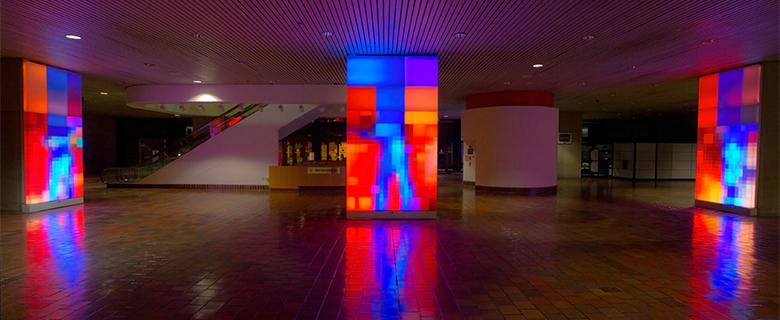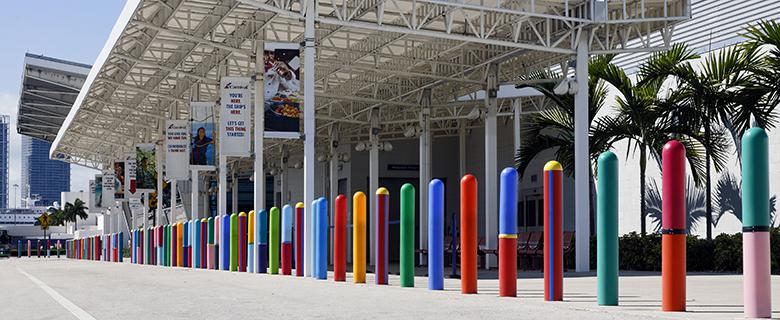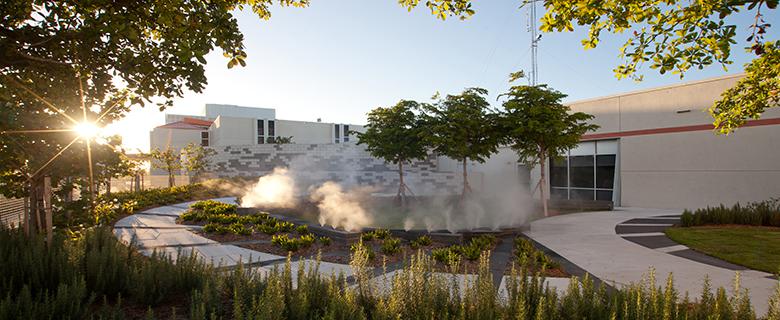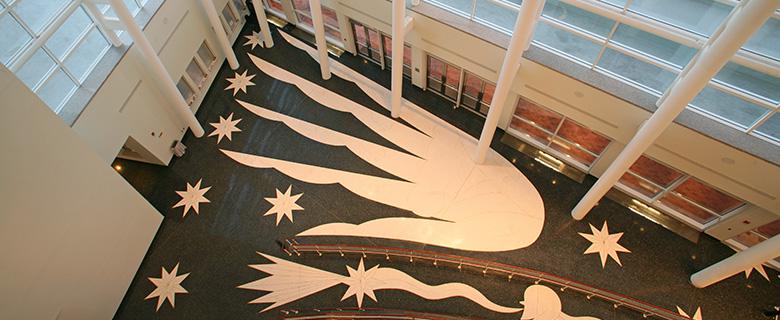Secured funding for the project
Q: What funding is available for the project?
A: The Miami-Dade County Board of County Commissioners has approved $5 million from Convention Development Tax (CDT) bond proceeds and $15 million from the Building Better Communities General Obligation Bond (BBC-GOB) for the project. These funding sources have been reviewed by the Office of the County Attorney and have been determined as eligible for the project as designed. In addition, proceeds from the Playhouse’s existing surface parking lot will be used for the Playhouse’s capital project.
R#919-04 GOB
R-1408-00 $5M CDT
http://www.miamidadearts.org/sites/default/files/files/inline/r-1408-00_5m_cdt_funding.pdf
In addition, in December 2018, the John S. and James L. Knight Foundation awarded the County a $2 million grant for the construction of the 300-seat theater. This funding will further ensure that an outstanding regional theater can be built as designed – to the very highest standards of quality. This major gift serves as a strong affirmation that the County’s plan for the Coconut Grove Playhouse is the right one for Coconut Grove, for the arts community, and for South Florida.
The uses of County funding
Q: Is the County funding restricted to the restoration of the existing building?
A: Funding for the project can be used for the various options explored by the project’s design team in developing a solution that respects the history of the site and helps ensure the viability of the theater. The specific language related to the use of the funds in the Convention Development Tax (CDT) bond and the Building Better Communities General Obligation Bond (BBC-GOB) documents states:
- CDT funding: “repair of the historic structure; repair and expansion of the historic structure; or demolition and reconstruction.”
- BBC-GOB funding: “GOB funds would complement other funding to reconstruct the Coconut Grove Playhouse to restore its structural integrity and add to its performance and educational capabilities."
Major grant awarded by the Knight Foundation
Q: What is the impact of the $2 million grant awarded to the County by the Knight Foundation for the Playhouse project?
A: In December 2018, the John S. and James L. Knight Foundation awarded the County a $2 million grant for Playhouse project, specifically for the construction of the 300-seat theater. This funding will further ensure that an outstanding regional theater can be built as designed – to the very highest standards of quality. This major gift serves as a strong affirmation that the County’s plan for the Coconut Grove Playhouse is the right one for Coconut Grove, for the arts community, and for South Florida.
No County funds to build or operate the garage
Q: Are voter-approved County funds being used for the construction of a garage?
A: No County funds will be used to build or operate the proposed garage. The $20 million in County funds allocated for the Coconut Grove Playhouse will be used for the theater.
Use of funds from the garage development
Q: Why are funds from the garage development proposed for the renovation of the Coconut Grove Playhouse?
A: Funding from the development of the garage and other related development (i.e. retail, office, residential, etc.) will augment secured capital funding for the construction of the theater as outlined in the approved lease with the State of Florida. These funds will help complete the project to the high standards being set for the restoration and new construction work.
The fee to Arquitectonica and its design team
Q: How much is Arquitectonica is being paid to work on this project and is the amount justifiable?
A: It is typical on a complex project such as this one to have the cost of architectural and engineering services for design be between 10-12% of the overall capital costs. The contract between the County and Arquitectonica includes not only design but also construction administration by the design team (i.e., oversight of the project during construction). The total contract amount is reasonable for the breadth of services to be rendered over the entire length of the project. The amount of the professional services agreement with the team led by Arquitectonica, advertised in the solicitation documents and approved by the County Commission, is $2.4 million, and it includes basic services, contingency and reimbursable expenses for the entire architectural and engineering team. This covers all of the following specialty firms and sub-consultants that are a part of this team and required for this job:
- Architecture
- Historic Preservation Architecture and Specialists
- Mechanical, Electrical, Plumbing, and Fire Protection Engineering
- Structural Engineering
- Civil Engineering and Traffic
- Landscape Architecture
- Theater Design and Systems
- Acoustical, Sound and Communications Design and Systems
- Cost Estimating
- Scheduling
- Building Envelope
- Signage and Wayfinding
- Security
- LEED/Sustainability
The total fee covers these services from the conceptual design through the completion of construction, a process that is scheduled to last approximately 5-6 years.
Encumbrances resolved on the property’s title
Q: How were the encumbrances on the property title resolved within the 90 days required in the lease agreement?
A: The largest encumbrance was attributable to accumulated fines levied by the City of Miami for building code violations (e.g., graffiti; broken windows and doors; etc.) while the property was closed and still under the control of the former operator, the non-profit Coconut Grove Playhouse, Inc. In return for the City’s agreeing to waive these fines, an agreement between the County and the City allowed the Miami Parking Authority to operate the surface parking at the Playhouse and to have the opportunity for future joint development of a garage on the property. The County resolved other, smaller liens on the title of the property by agreeing to pay the lien holders a small percentage of the debts that they had from doing business with the former Coconut Grove Playhouse non-profit. Funds to resolve these title encumbrances were from parking revenues of the Playhouse’s surface parking lot and not from County tax dollars. See link to a BCC agenda item accounts for the County’s resolution of these liens on the title here. Subsequently, the County, in cooperation with the State of Florida and with the assistance of the County’s title insurance company, resolved another title issue. Here is the link to the BCC agenda item that successfully addressed this matter.
$500,000 grant applied for from the State Division of Historical Resources
Q: Will there be an impact to the project as a result of not securing a $500,000 grant this year from the State of Florida Division of Historical Resources?
A: Miami-Dade County submitted a request for $500,000 to the competitive capital grant program of the State of Florida Division of Historical Resources. These funds were requested to help with the work necessary to stabilize and restore the historic front building to its 1927 splendor. The Division of Historical Resources ruled that the grant request was technically “ineligible.” Miami-Dade County strongly disagreed with this ruling and submitted a letter attesting to the project’s conformance with the State’s grant guidelines and its development as a model of historic preservation practices. Our response to the State can be accessed here. While these additional funds would have been helpful, the project is still on track with the secured $20 million in County funding and the $2 million Knight Foundation grant in place.
Support from the State’s Division of Historical Resources
Q: What has the State’s Division of Historical Resources said about the County’s plans for the Playhouse?
A:Florida Division of Historical Resources Director and State Historic Preservation Officer, Tim Parsons stated: “Although the grant application was determined ineligible, I’d like to reaffirm my support for efforts to rehabilitate the Coconut Grove Playhouse. The amount of planning and work that has gone into the project so far is tremendous, and I look forward to continuing the discussion as we move forward with the National Register nomination… I don’t believe that a determination of eligibility or ineligibility for a grant program is necessarily an indication of a project’s value as a community resource. There is no universally appropriate template for a project such as this, and I appreciate the dedication to creative design and problem-solving that has been a part of this effort for many years. There is obviously great potential for the playhouse, and I’m truly looking forward to seeing it’s revitalization come to fruition.”
The City of Miami’s voter-approved bond program
Q: Does the City of Miami’s voter-approved bond issue have an additional $10 million “grant” for the Coconut Grove Playhouse project?
A: In initial materials developed by the City of Miami to suggest how the $400 million in bond funds would be used, there is a $10 million line item for “Cultural and Historic Facilities” which does not provide any details regarding specific projects. There has been speculation and commentary about a number of possible uses, including for the Playhouse, for Gusman Center for the Performing Arts, etc. The City of Miami has taken no action to date to allocate any of these bond funds to cultural and historic projects.






